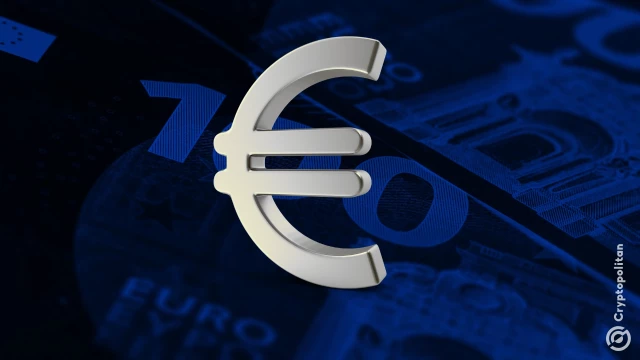
ECB warns dollar stablecoins could trigger major macro shocks in Europe
Cryptopolitangeneral
Speaking in an interview with the Financial Times on Monday morning, the European Central Bank (ECB)'s Dutch central bank governor, Olaf Sleijpen, said the rise of dollar-linked stablecoins is enough to shake Europe's money system if anything goes wrong.
📋 Article Summary
The ECB's Warning on Dollar Stablecoins: Navigating Potential Macro Shocks in Europe
As the global cryptocurrency landscape continues to evolve, the European Central Bank (ECB) has raised a critical alarm about the risks posed by dollar-linked stablecoins. In a recent interview with the Financial Times, Olaf Sleijpen, the Dutch central bank governor, highlighted the potential for these digital assets to trigger major macroeconomic shocks within Europe's financial system.
Stablecoins, which are cryptocurrencies pegged to fiat currencies or other assets, have gained significant traction in recent years as a means of facilitating digital transactions and providing price stability compared to more volatile cryptocurrencies. However, the ECB's concerns center around the dominance of the US dollar as the primary reserve currency underpinning many of these stablecoin projects.
Sleijpen's warning underscores the systemic risks that could arise if something were to go wrong with these dollar-denominated stablecoins. The rapid growth and widespread adoption of these assets, particularly in cross-border payments and decentralized finance (DeFi) applications, has made them increasingly integral to the global financial ecosystem. A disruption or failure in the stablecoin market could have far-reaching consequences, potentially destabilizing Europe's monetary system and triggering significant macroeconomic shocks.
The ECB's concerns are rooted in the potential for stablecoins to displace traditional fiat currencies, particularly the euro, in key areas of financial activity. If European consumers and businesses were to increasingly rely on dollar-backed stablecoins for everyday transactions and savings, it could erode the dominance of the euro and undermine the ECB's ability to effectively manage monetary policy. This shift could also have implications for financial stability, as the ECB would have less control over the money supply and the transmission of its policy decisions.
Moreover, the ECB is concerned about the regulatory oversight and transparency surrounding stablecoin operations. The lack of a unified global regulatory framework for these digital assets has led to a patchwork of national and regional regulations, which could complicate efforts to monitor and mitigate systemic risks. The ECB has called for a more comprehensive regulatory approach to address these concerns and ensure the stability of the European financial system.
As the crypto industry continues to evolve, the ECB's warning on dollar stablecoins serves as a wake-up call for policymakers, regulators, and industry stakeholders to work collaboratively to address the potential risks and opportunities presented by these innovative financial instruments. Navigating this landscape will require a delicate balance of fostering innovation while also safeguarding financial stability and protecting the integrity of European monetary policy.
In the months and years ahead, the ECB's stance on stablecoins is likely to shape the regulatory landscape and influence the strategic decisions of cryptocurrency projects operating within the European Union. Investors, entrepreneurs, and industry participants will need to closely monitor these developments and adapt their strategies accordingly to ensure the sustainable growth and integration of stablecoins within the broader financial ecosystem.